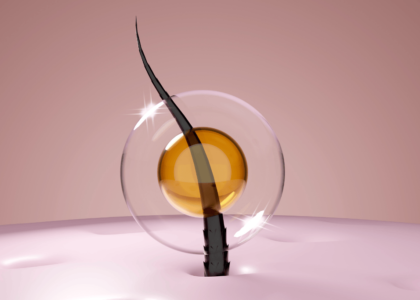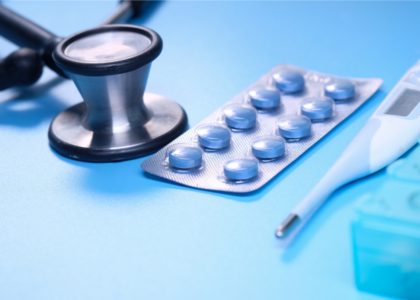Struggling with energy, intimacy or confidence? These issues are more common than you might think, and they can impact every area of your life. Many men aren’t comfortable talking about these challenges as they age, particularly when it comes to erectile dysfunction (ED).
But here’s the thing: ED isn’t just about performance—it’s about your overall health, vitality, and feeling your best. Testosterone, a key hormone in men’s health, plays a powerful role in this equation. Dr. Kendrick Heywood, an expert in sexual wellness, shares what every man should know about the connection between testosterone and ED and how understanding this can lead to lasting improvements in both health and confidence.
What is Erectile Dysfunction (ED)?
Erectile Dysfunction (ED) is the inability to get or keep an erection hard enough for sexual activity. With many possible causes– stress, health conditions, lifestyle habits, aging – it’s a widespread issue. Tackling ED involves a well-rounded approach that applies both lifestyle changes and medical options.
What is Testosterone, and Why is it Important?
Typically, testosterone is thought of as the defining hormone of masculinity. Testosterone doesn’t just fuel our sexual drive; it plays a role in energy levels, muscle mass, bone density, mood, and even cognitive function. In short, it is the hormone that facilitates some of a man’s physical and mental well-being.
Testosterone levels peak during adolescence and early adulthood but begin to drop off slowly after age 30. The decline is normal for some men, but it can reach a point where testosterone levels become low enough to affect various aspects of their health, including sexual function.
The Role of Testosterone in Erectile Function
An erection is a complex interaction of hormones, blood flow, nerve signals, and even psychological factors. There is a lot more to testosterone’s role in erectile function than most people realize, says Dr. Heywood, and testosterone is not always the accurate culprit of all things gone wrong. Libido — or sexual drive — is the mental desire for sex, and testosterone is essential for libido. Testosterone, then, is just one piece of a pretty large puzzle when it comes to the physical ability to achieve an erection.
Testosterone plays an important role in maintaining healthy blood vessels for an erection, but it doesn’t cause an erection. Instead, it is designed to help with those underlying mechanisms that allow erections. Dr. Heywood says that many men who have low levels of testosterone complain of a lack of desire, and one result is having a problem with erections. In simpler terms — it could be that you can’t get aroused when you actually want to, even if you don’t have any physical issues preventing you from getting an erection.

Low Testosterone and Erectile Dysfunction: The Connection
Low testosterone levels (or “low T”) are rarely the sole cause of erectile dysfunction. ED is often multifactorial, meaning it usually results from a combination of physical, psychological, and lifestyle factors. Some common causes of ED include:
Vascular Problems: Anything that causes high blood pressure, diabetes, or high cholesterol can damage blood vessels and decrease the amount of blood flowing to the penis, which can make it difficult to get or maintain an erection.
Psychological Factors: “ED is most commonly caused by stress, anxiety, or depression,” says Dr. Heywood. Even men with normal testosterone levels may have ED if they are dealing with mental health issues.
Medications and Lifestyle: ED can be caused by some medicines, smoking, excessive alcohol consumption, and lack of physical activity.
Many men who seek Dr. Heywood’s expertise for ED have normal testosterone levels, but they may have other underlying health conditions that need to be addressed. Therefore, it is important to look at a man’s health as a whole.
How to Address Low Testosterone-Related ED
If low testosterone is identified as a cause of ED, there are several approaches to addressing it. Dr. Heywood is an advocate of lifestyle modifications, which can make a substantial difference.
- Diet, exercise, and stress management are foundational to hormone health. By improving diet, getting regular exercise, and reducing stress, men can often see a natural boost in their testosterone levels.
- For men with persistently low testosterone, testosterone replacement therapy (TRT) may be an option. However, Dr. Heywood suggests caution, emphasizing that TRT should only be considered after a thorough review and evaluation by a medical professional. TRT can help restore libido and improve energy, but it’s not a cure-all for ED. For many men, TRT is most effective when combined with lifestyle modifications, counseling, or medicine for other health conditions.
In Dr. Heywood’s practice, he takes a holistic approach to identifying and treating ED. Instead of focusing exclusively on testosterone, he considers other possible causes. Blood tests are the beginning point, but he also takes into account psychological variables, lifestyle choices, and other health issues.
A Holistic Path to Health and Confidence
Dr. Heywood encourages men to think of their health as a whole rather than focusing on one hormone or quick fixes. “By addressing the root causes of ED, whether that’s low testosterone, vascular health, or lifestyle factors, we can help men achieve a better quality of life,” he says.
With his years of expertise in sexual wellness, Dr. Heywood offers a refreshing perspective: the path to sexual wellness isn’t about magic pills or quick fixes but about understanding and optimizing the body as a whole.
So, if you want to regain your confidence, book your consultation with Dr. Kendrick Heywood at Liquivida® Fort Lauderdale Beach and restore your vigor!













